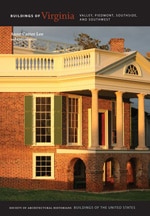
Shortly after gaining independent city status, Salem built this civic center, a modern group of buildings on an undeveloped piece of land that had served as a fairground for many years. The city intended the complex to emphasize Salem's standing as an independent city (and not an appendage to Roanoke) and reaffirm it as a long-standing center for sporting activities. Designed by a Roanoke firm, the large low-domed coliseum building, with attached meeting rooms and service areas, is the focus of the complex. Located on axis with the principal entrance to the complex, the building is reached along an allee of trees. Modern materials, including reinforced-concrete arches and multicolored metal panels, detail the building. More recent additions to the complex include an outdoor stadium and a baseball park.

